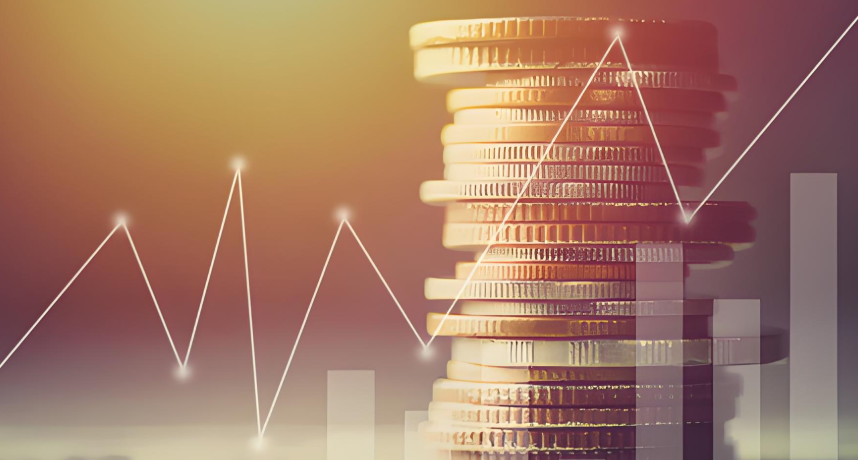Stock Market Analysis
652 Comments
Bitcoin Surges 138% This Year!
Advertisements
The world of cryptocurrency has been experiencing extraordinary fluctuations, and on December 5, an unprecedented milestone was reached. Bitcoin surged past the $100,000 mark, climbing 4% within the day and reaching a historic high. This dramatic ascendance represents an astonishing 138% increase since the beginning of the year. It's noteworthy that since November 4, Bitcoin has skyrocketed from $68,000 to $100,000 in just a month, a testament to the remarkable volatility that characterizes this digital currency.
Another significant development in the financial landscape occurred with the announcement of Paul Atkins as the new chairman of the U.S. Securities and Exchange Commission (SEC). The news was shared on social media platforms this Wednesday, signaling a potential shift in regulatory approaches. Atkins, who is the CEO and founder of the risk consulting firm Patomak Global Partners, previously served as an SEC commissioner from 2002 to 2008. If the Senate confirms his appointment, there is potential for a shift away from the stringent regulatory measures implemented by current SEC chair Gary Gensler, possibly favoring a more lenient approach.
The significance of the SEC chair position stems from Gensler's aggressive enforcement actions against the cryptocurrency industry. Under his leadership, the SEC has taken substantial actions against various crypto firms and protocols, including exchanges and token issuers, often citing failures to register or disclose essential information about offerings that the SEC deems to be unregistered securities. Gensler has also gained notoriety for having a challenging working relationship with industry players, leading to tensions within the sector.

Atkins has been a long-time advocate for a lighter regulatory framework for emerging technologies, including cryptocurrencies and blockchain, arguing that such a framework could foster innovation while reducing barriers to development. He proposes the establishment of a harmonized regulatory framework that minimizes overlapping regulations, which he believes stifle innovation. Atkins emphasizes the need for clarity regarding which digital assets should be classified as securities, allowing cryptocurrency businesses to navigate the legal landscape more effectively and streamline compliance processes. His commitment to digital currency is evident; he believes that digital assets are vital for maintaining U.S. leadership in the financial sector and recognizes the need for a fair and orderly market that can combat illicit activities like money laundering. However, he also cautions that overregulation might drive innovation overseas—a scenario that could be detrimental to the United States' position in the industry.
In a related vein, Federal Reserve Chairman Jerome Powell addressed cryptocurrency dynamics at the DealBook Summit. He likened Bitcoin to gold, characterizing it as a speculative asset rather than a credible means of payment or reliable store of value. Despite its increasing popularity, Powell emphasized Bitcoin's volatility, indicating it is not competing with the U.S. dollar but rather with gold. He reiterated his commitment to maintaining a secure and strong banking system, clarifying that the Federal Reserve does not consider itself responsible for regulating the cryptocurrency ecosystem. When probed about his personal holdings in Bitcoin, Powell stated that he was not permitted to own any, underscoring the cautious stance he and other regulators take regarding personal investments in cryptocurrencies.
Interestingly, the Bitcoin narrative is not limited to the United States. Russia has also come out in favor of cryptocurrency, questioning the need to accumulate foreign exchange reserves given their precarious nature. During an investment conference, a notable figure suggested that if foreign currency reserves are so easily lost, then what is the rationale behind maintaining them? This rhetoric marks a significant departure from traditional views on currency reserves, hinting that Bitcoin and other digital currencies could serve as more resilient alternatives to conventional assets.
The implications of confiscation of foreign reserves could tarnish the U.S. dollar's reputation as the primary global reserve currency, and as indicated during the conference, various nations are now turning to cryptocurrencies as an alternative. "For example, Bitcoin. Who can prohibit it? No one," was a key takeaway from the discussion. This sentiment resonates particularly well in the context of Western sanctions that have imposed significant strains on the Russian economy, pushing the Kremlin towards a more accepting stance on digital assets. Just last week, a crucial piece of legislation was signed that officially recognizes cryptocurrency as ‘property’ and establishes a comprehensive tax framework for trading and mining. This legal framework, set to come into effect on January 1, 2025, signifies a pivotal moment for Russia as it begins to navigate the complexities of cryptocurrency regulation and taxation.
This evolving dynamic between regulatory bodies, cryptocurrency, and national economic interests highlights the intricate relationship countries now have with digital assets in a rapidly changing global financial landscape. As cryptocurrencies continue to gain traction and legitimacy, the need for clear, coherent, and flexible regulatory frameworks becomes paramount. Countries like the U.S. and Russia illustrate the diverse approaches to cryptocurrencies—one leaning towards tighter regulations while the other embraces a more accommodating standpoint. The evolution of these policies will undoubtedly shape the future of cryptocurrency on the world stage, influencing innovation, investment, and the ongoing dialogue about the role of digital assets in global finance.
Latest Posts
-
-
What Does Market Valuation Mean?
November 25, 2024
-
Meitu Books $80M Profit on Crypto Sale
October 25, 2024
-
Fed Holds Steady, Dow Soars 500 Points
November 2, 2024
-
VIX Calms Down: Is the Worst Over for U.S. Stocks?
October 27, 2024
-
Bitcoin Surges 138% This Year!
November 8, 2024
-
U.S. Stocks Slide 4% as Amazon Gains 2% Post-Earnings
October 24, 2024
-
Soaring Low-Altitude Economy Amidst AI Sector Jitters
December 6, 2024
-
A History of Discontinuations: Tracking the Trend
November 15, 2024
Leave A Comment
Save my name, email, and website in this browser for the next time all comment.